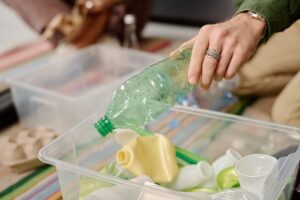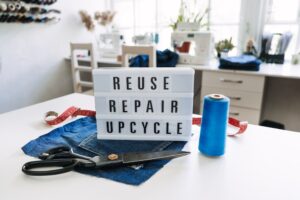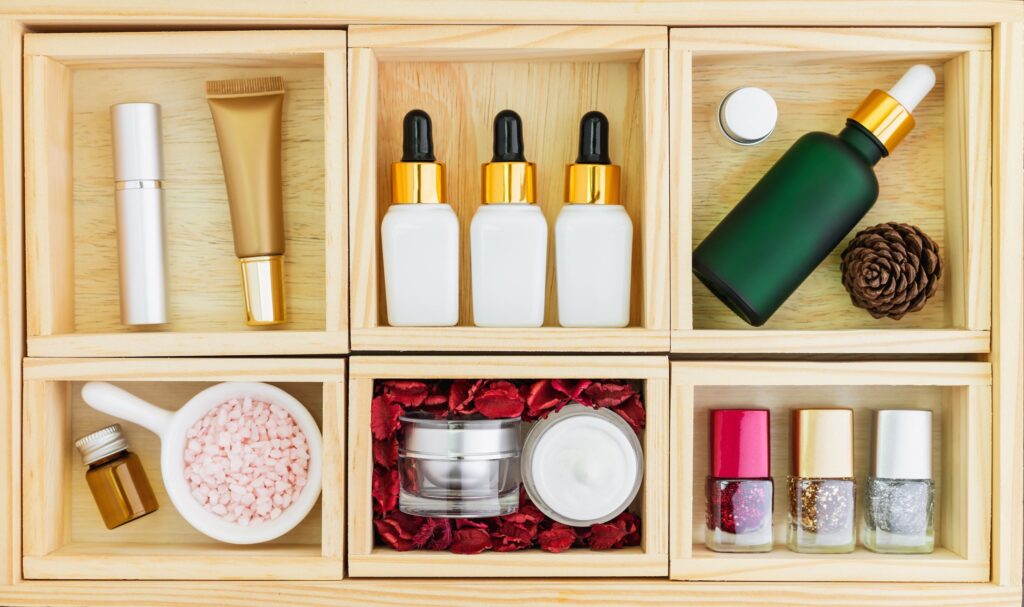As consumers become more conscious of their impact on the environment and society, there has been a growing demand for ethical and sustainable beauty products. Ethical beauty refers to products that are responsibly sourced, manufactured, and distributed, without causing harm to animals, people, or the environment. In this article, we will discuss some tips for supporting ethical and sustainable beauty practices.
Look for Ethical Certifications
One way to support ethical and sustainable beauty practices is to look for products that have ethical certifications. Some of the most well-known ethical certifications for beauty products include Leaping Bunny and PETA’s Beauty Without Bunnies. These certifications indicate that the products are cruelty-free and have not been tested on animals.
Other certifications to look out for include the Fairtrade Certified Mark and the Rainforest Alliance Certified seal. These certifications guarantee that the products have been sourced and produced in a sustainable and ethical way, and that the workers involved in the production process are treated fairly.
There are also certifications that focus on specific areas of sustainability. For example, the USDA Organic certification ensures that the ingredients in the product are grown and processed without the use of synthetic pesticides, fertilizers, or genetically modified organisms (GMOs). The Forest Stewardship Council (FSC) certification indicates that the packaging materials used in the product have been responsibly sourced and do not contribute to deforestation.
Choosing products with ethical certifications not only supports companies that prioritize sustainability and ethics, but it also helps consumers make more informed decisions about the products they use.
Choose Cruelty-Free and Vegan Products
Another way to support ethical and sustainable beauty practices is to choose products that are cruelty-free and vegan. Cruelty-free products are not tested on animals, while vegan products do not contain any animal-derived ingredients. By choosing cruelty-free and vegan products, you are supporting companies that prioritize animal welfare and environmental sustainability.
To identify cruelty-free products, look for logos and labels from organizations such as PETA, Leaping Bunny, and Choose Cruelty-Free. You can also visit their websites to search for cruelty-free brands and products.
Some common animal-derived ingredients in beauty products include beeswax, lanolin, and carmine. To avoid these ingredients, check the product’s ingredient list or look for vegan labeling.
Choosing vegan products also supports sustainability, as animal agriculture is a significant contributor to greenhouse gas emissions and deforestation. By choosing vegan products, we can reduce our carbon footprint and support a more sustainable future.
Research Companies and Brands
Researching the companies and brands that you use is essential in supporting ethical and sustainable beauty practices. By doing so, you can ensure that the products you use are made with sustainable and ethical practices.
Start by checking for transparency on the brand’s website or packaging. Look for information on the sourcing and manufacturing of the products, including the supply chain and labor practices. You can also look for third-party certifications or reports on sustainability and ethical practices.
Choose companies and brands that prioritize ethical and sustainable practices, such as using recycled or sustainable materials, minimizing waste, and investing in renewable energy. Additionally, support small and independent brands that focus on sustainability and ethics, as they are often more transparent and conscious of their practices.
One example of a small and independent brand that prioritizes sustainability and ethics is Meow Meow Tweet. The brand uses organic, vegan, and fair-trade ingredients, and all their packaging is either biodegradable, compostable, or recyclable. They also prioritize transparency in their supply chain and partner with organizations that promote social and environmental sustainability.
Reduce Waste
Reducing waste is another way to support ethical and sustainable beauty practices. The beauty industry generates a significant amount of waste, from plastic packaging to excess product. By reducing waste, we can minimize our impact on the environment and support a more sustainable future.
Choose products with minimal packaging, such as bar soap and shampoo bars, or products that come in recyclable packaging. Buying in bulk can also reduce waste, as it reduces the need for single-use packaging.
Another way to reduce waste is to repurpose or recycle packaging. Many companies, such as Lush Cosmetics, offer recycling programs where customers can return empty containers in exchange for rewards or discounts.
There are also several zero-waste beauty brands, such as Ethique and Package Free Shop, that focus on reducing waste in the beauty industry. These brands offer products that are packaged in compostable or reusable materials, and they prioritize sustainability throughout their entire supply chain.
Support Ethical and Sustainable Brands
Finally, supporting ethical and sustainable brands is crucial in driving change within the beauty industry. By choosing to buy from companies that prioritize sustainability and ethics, you are contributing to a more sustainable and ethical future.
Research and choose companies that use sustainable and ethical practices, and support their efforts by purchasing their products. Additionally, share your support for ethical and sustainable practices with your friends and family, and encourage them to make conscious choices in their beauty purchases.
One example of a larger brand that has made significant efforts towards sustainability and ethics is The Body Shop. The brand has been a pioneer in the ethical beauty movement since the 1980s and has made commitments to becoming a more sustainable and ethical company. The Body Shop uses sustainably sourced ingredients, supports fair trade practices, and does not test on animals. They also have several initiatives in place to reduce waste and promote recycling.
Final Thoughts
Supporting ethical and sustainable beauty practices is an essential step in promoting sustainability and social responsibility within the beauty industry. By looking for ethical certifications, choosing cruelty-free and vegan products, researching companies and brands, reducing waste, and supporting ethical and sustainable brands, we can all contribute to a more sustainable and ethical future.
It is important to remember that small changes can make a big impact. By making conscious choices in our beauty purchases, we can support companies that prioritize sustainability and ethics, and ultimately, help to drive change within the industry. Let’s work together to create a more sustainable and ethical future for ourselves and the planet.









Reader Interactions